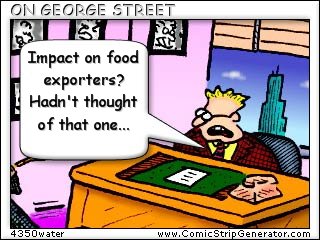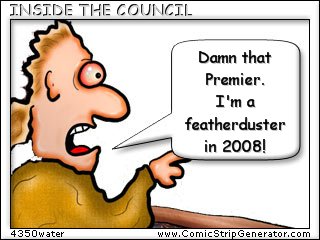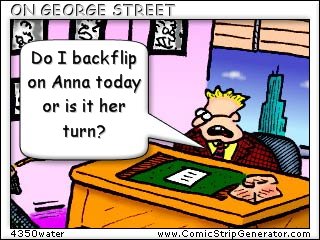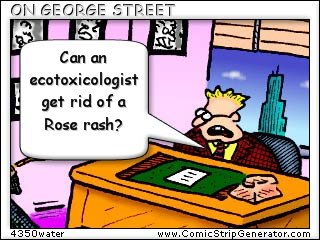Rich harvest for French recycled water company ...

Excerpt from the Courier Mail (annotated):
Rich harvest for French
31 January 2007
A Giant French company will reap hundreds of millions of dollars from southeast Queensland's water crisis, with consumers set to pay the price.
In a little-publicised deal, Paris-based Veolia Water has been awarded lucrative contracts by the State Government to run the $1.7 billion western corridor recycled water pipeline and the $1.3 billion Gold Coast desalination plant. [4350water blog told you this on 9 January - see - SEQ recycled water contractor chosen.]
The commercialisation of two of the state's biggest drought infrastructure projects has heightened fears that water prices could skyrocket.
Veolia, which turns over $42 billion a year, has revealed it expects to rake in at least $210 million ($351 million) from running the desalination plant over the next 10 years.
The windfall will be even higher if the company is granted a proposed five-year contract extension.
Water from the desalination plant – according to State Government estimates – is likely to cost about $3000 a megalitre to produce, meaning a single day's production will cost about $375,000. Brisbane householders pay $750 a megalitre for conventionally treated drinking water.
Veolia announced its involvement in the recycled water pipeline and desalination plant on its website last month, but the State Government has been silent on the details.
Gold Coast City Council has also played down Veolia's involvement in the so-called "Gold Coast Desalination Alliance".
A spokesman for Deputy Premier and Infrastructure Minister Anna Bligh said Veolia was a "major international water company" and had been chosen because of its expertise in large-scale water projects.
Ms Bligh this month rejected a claim by Federal Parliamentary Secretary for Water Malcolm Turnbull that the Government planned to privatise the western corridor pipeline, which will take recycled wastewater from Brisbane to the Swanbank and Tarong power stations.
But she admitted southeast Queenslanders faced "significant increases" in water prices to pay for the Government's $7 billion "drought-proofing" plan.
"It is inevitable that the significant increase in water infrastructure will mean an increase in water pricing," Ms Bligh told The Courier-Mail.
"We are in the process of working with the Water Commission and local councils to do some work on what those increases might be and how we might spread them in a way that is most reasonable . . . to consumers."
See - The French connection.















